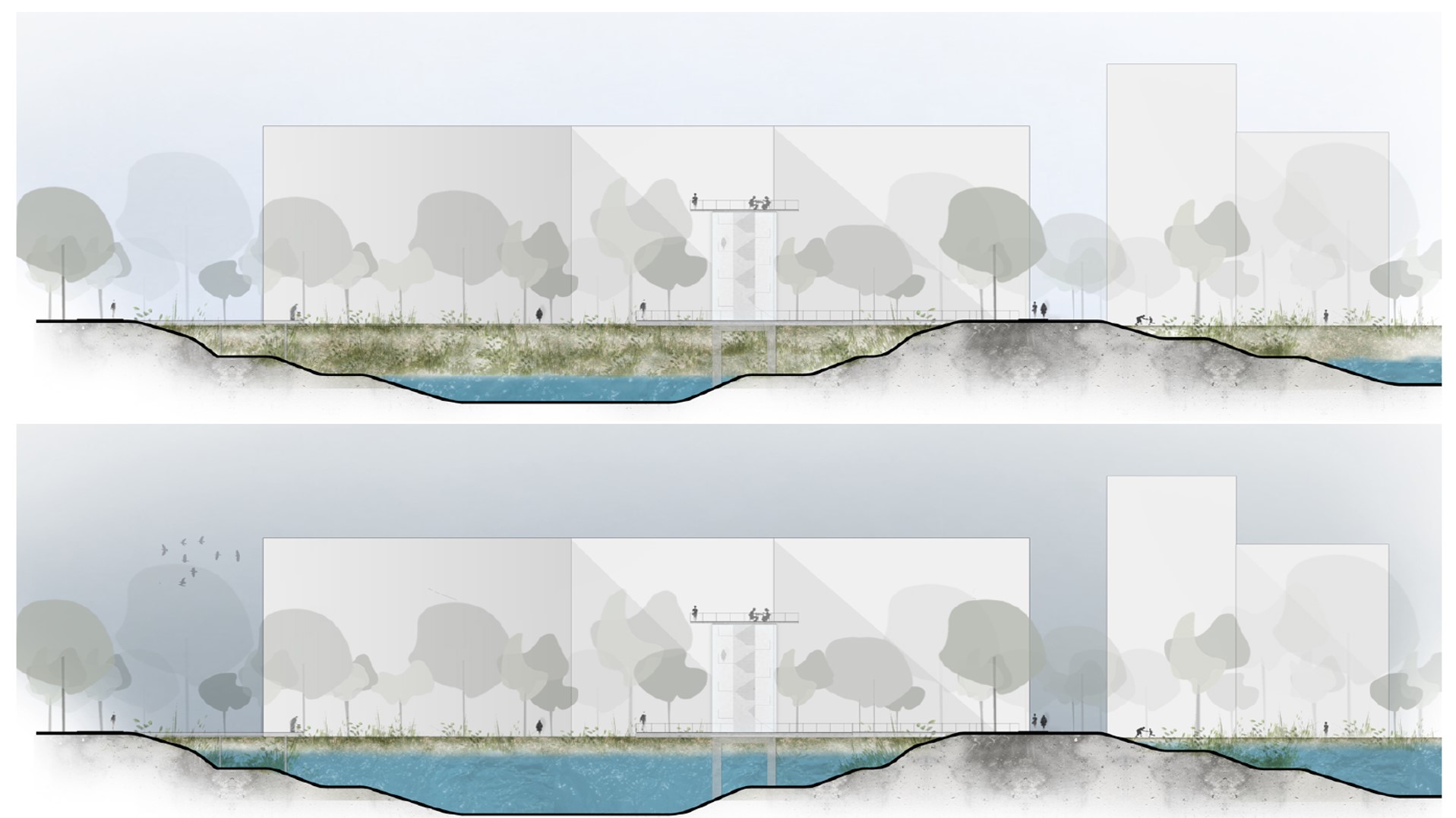
“Communal Wetlands” - A Participatory Planning Approach to Urban Placemaking. Green Development Strategy in Sylhet City (Bangladesh)
Master Thesis
Hochschule Anhalt - Anhalt University of Applied Sciences
Sylhet, one of the prominent divisional town of Bangladesh, growing faster than ever. Migrations are taking place, the city’s inner circle is getting full, and the outer ring keeps expanding. The investors are building new high-rise office buildings, commercial complexes, residential buildings side by existing narrow roads, eventually destroying the water bodies, green areas, and natural canals. Meanwhile, the local government is trying to deal with urgent issues like traffic congestion, waterlogging, vandalism, and many other problems. Despite these efforts, the living condition in the metropolis is deteriorating because of inadequate open spaces, and increasing environmental issues. Inhabitants are detaching from their traditional way of living as well. For example, water has always been a part of the local’s lifestyle, yet, rapid economic growth with new opportunities forcing people to fill-up their privately owned ponds, low lands, and wetlands. People are prioritizing income rate over the better living condition, which is a typical scenario in developing countries. In this context, the study, introduce and apply a green development strategy in Sylhet city that includes the local government and other stakeholders to urban placemaking. Therefore, the study follows both qualitative and quantitative data collection method, i.e., literature review, questionnaire (for public participation) and GIS metadata (to simulate optimal planning strategy). In the end, propose and visualize a participatory green development strategy and depicts how the city’s natural resource like wetland as a tool can offer a useful and attractive city for the inhabitants.
